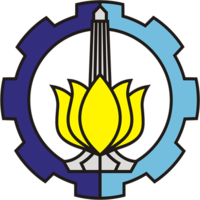The Paradox of E-Office Adoption in Indonesian Public Service with 24.000 Apps: Innovation or Prestige?
Abstract
Keywords
Full Text:
PDFReferences
Achmad, Z. A., Siswati, E., Wahyudi, A., Alamiyah, S. S., & Juwito. (2021). Data Indeks Demokrasi Indonesia Kota Blitar Tahun 2020 (Z. A. Achmad & D. Nasution (eds.)). Sahaja.
Alamiyah, S. S., Achmad, Z. A., Siswati, E., Batari, F. T., Fitriana, V. V., & Widiati, W. R. (2022). Analisis Isi Berita Media Massa dan Regulasi Daerah yang Mempengaruhi Indeks Demokrasi Indonesia. PT. INSAN CENDEKIA MANDIRI GROUP. http://repository.upnjatim.ac.id/12482/
Ashraf, A. R., Thongpapanl, N. (Tek), & Spyropoulou, S. (2016). The connection and disconnection between e-commerce businesses and their customers: Exploring the role of engagement, perceived usefulness, and perceived ease-of-use. Electronic Commerce Research and Applications, 20, 69–86. https://doi.org/10.1016/j.elerap.2016.10.001
Ashraf, A. R., Thongpapanl Tek, N., Anwar, A., Lapa, L., & Venkatesh, V. (2021). Perceived values and motivations influencing m-commerce use: A nine-country comparative study. International Journal of Information Management, 59, 102318. https://doi.org/10.1016/j.ijinfomgt.2021.102318
Geels, F. W. (2002). Technological transitions as evolutionary reconfiguration processes: a multi-level perspective and a case-study. Research Policy, 31(8–9), 1257–1274. https://doi.org/10.1016/S0048-7333(02)00062-8
Hafel, M., Jamil, J., Umasugi, M., & Anfas, A. (2022). Challenges of E-Government Implementation in The Region Archipelago Characteristics. JAKPP (Jurnal Analisis Kebijakan & Pelayanan Publik), 8(1), 44–58. https://doi.org/10.31947/jakpp.v8i1.21282
Janssen, M., Kukulaksız, S., & Steenhoff, M. (2011). Measuring e-government success: From rhetoric to results. International Journal of Electronic Governance, 4(3), 239-262. (https://www.inderscience.com/jhome.php?jcode=ijeg)
Kemenpan-RB (Kementerian Pendayagunaan Aparatur Negara dan Reformasi Birokrasi) (2014). Peraturan Menteri Pendayagunaan Aparatur Negara dan Reformasi Birokrasi Republik Indonesia Nomor 52 Tahun 2014 tentang Petunjuk Pelaksanaan Pembangunan Zona Integritas Menuju Wilayah Bebas dari Korupsi dan Wilayah Bersih dan Melayani [Regulation of the Minister of Administrative Reform and Bureaucratic Reform of the Republic of Indonesia Number 52 of 2014 concerning Guidelines for the Development of Integrity Zones Towards Corruption-Free Areas and Clean and Serving Bureaucratic Areas] (https://peraturan.bpk.go.id/Details/132770/permen-pan-rb-no-52-tahun-2014) (In Indonesian)
Layne, K. (2002). The problem of network governance. Administration & Society, 34(1), 103-128.
Manar, D. G. & Alfirdaus, L.K. (2023) Analisis Kegagalan Inovasi Pemerintah Daerah. POLITIKA: Jurnal Ilmu Politik Vol.14, No. 1, 2023
Mashabi, S. Erdianto, K. (2020, Februari 26). Survei Ombudsman: Masyarakat Tidak Suka Layanan Berbasis Aplikasi. [situs berita] diakses dari https://nasional.kompas.com/read/2020/02/26/19263511/survei-ombudsman-masyarakat-tidak-suka-layanan-pemerintah-berbasis-aplikasi
Mazzucato, M. (2015). The Entrepreneurial State : Debunking Public vs. Private Sector Myths (Revised). PublicAffairs.
Minister of Finance of the Republic of Indonesia. (2023, May 17). Menkeu Sorot Aplikasi Tak Terawat di Lembaga Pemerintah [Finance Minister Highlights Neglected Applications in Government Agencies]. Ministry of Finance of the Republic of Indonesia. [Indonesian] Retrieved from https://www.kemenkeu.go.id/
Moon, M. J. (2002). The evolution of e-government arguments and challenges for the transformation of government. Social Science Computer Review, 20(2), 118-132. (https://www.researchgate.net/publication/324496637_E-government_transformations_challenges_and_strategies)
Ordiyasa, I. W. (2015). Kegagalan Penerapan E-government di Negara-Negara Berkembang. Seminar Nasional Teknologi Informasi dan Multimedia 2015
Orr, G. (2003). Review Diffusion of Innovations, by Everett Rogers (1995). In Stanford University (Vol. 1, Issue 3, pp. 1–7). http://web.stanford.edu/class/symbsys205/Diffusion of Innovations.htm
Peraturan Menteri Pendayagunaan Aparatur Negara dan Reformasi Birokrasi Republik Indonesia Nomor 52 tahun 2014. Pedoman Pembangunan Zona Integritas Menuju Wilayah Bebas dari Korupsi dan Wilayah Birokrasi Bersih dan Melayani. 17 Oktober 2014. Berita Negara Republik Indonesia Tahun 2014 Nomor 1813. Jakarta.
Peraturan Presiden Republik Indonesia Nomor 95 tahun 2018. Sistem Pemerintahan Berbasis Elektronik. 2 Oktober 2018. Lembaran Negara Republik Indonesia Tahun 2018 Nomor 182. Jakarta.
Rogers, E. M. (2003). Diffusion of innovations (5th ed.). Free Press.
Rogers, E. M., & Williams, D. (1983). Diffusion of. Innovations (Glencoe, IL: The Free Press, 1962).
Rusmiarti, D. A. (2015). Analisis difusi inovasi dan pengembangan budaya kerja pada organisasi birokrasi. Masyarakat Telematika dan Informasi, 6(2), 85-100.
Talreja, S., Kaur, P., & Singh, M. (2017). A citizen-centric approach for e-government service delivery: A literature review. International Journal of Public Administration, 40(13-14), 1089-1102.
Tjahjono, A. F., Mashud, M., & Suaedi, F. (2022). Implementation of social capital for multipurpose cooperative autonomy. Masyarakat, Kebudayaan Dan Politik, 35(1), 44–57. https://doi.org/10.20473/MKP.V35I12022.44-57
Wulandari, S. A., Abidin, I. K. R., Achmad, Z. A., & Prakoso, M. A. (2023). The Obligations and Rights to Obtain Compensation as a Result of the Space Objects Discovery. JURNAL SOSIAL HUMANIORA (JSH), 16(2), 139–151. https://doi.org/10.12962/J24433527.V16I2.17440
Wibowo, I. T. (2019). Proses Difusi Inovasi Program Sakti (Studi Kasus Proses Difusi Inovasi Program Sistem Aplikasi Keuangan Tingkat Instansi (SAKTI) Ditjen Perbendaharaan di DI Yogyakarta Tahun 2018). Indonesian Treasury Review: Jurnal Perbendaharaan, Keuangan Negara dan Kebijakan Publik, 4(4), 323-337.
Yang, H., & Zhao, D. (2018). Performance Legitimacy, State Autonomy and China’s Economic Miracle. In S. Zhao (Ed.), Debating Regime Legitimacy in Contemporary China (1st ed.). Routledge.
DOI: http://dx.doi.org/10.12962%2Fj24433527.v17i2.20544
Refbacks
- There are currently no refbacks.
This work is licensed under a Creative Commons Attribution 4.0 International License.






